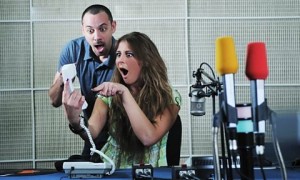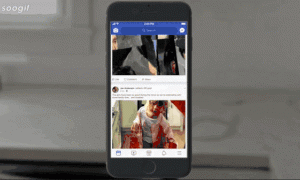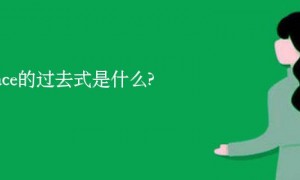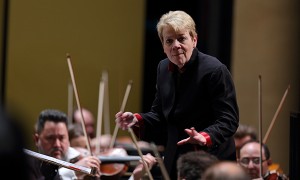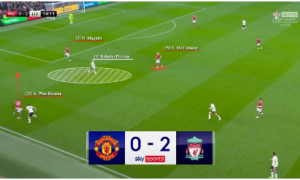下面两句话意思相同:
The soldier owed his courage to his ability to remain cool in the face of danger.
The soldier owed his courage to his ability to remain cool in face of danger.
这位战士把勇气归功于在危险面前保 持镇定的能力。
in one's face, on one's face
两者的意思有相同的情况,但多数情况下还是有区别的。它们的区别在于:
1.面部上有明显的突出物时用介词on,否则用in。试比较:
Your nose is on your face.
鼻子突出在面部。
Your eyes are in your face.
眼睛嵌在面部。
2.面部上有表情时,如smile, expression, grin, frown等,介词用on。例如:
A faint smile appeared on her face.她脸上露出了微微的笑容。
The young boy returned with a victorious grin on his face.年轻人面带胜利的微笑回来了。
hit my face, hit me in the face
在英语中常见的说法是hit me in the face; 前者指“打到的地方是脸部而不是其他部位”; 后者指“打到的人是我而不是别人,而被打到的部位是我的脸部而不是其他别的部位”。
in the face of, on the face of
这两个短语意思不同,前者的意思是“面临”,而后者的意思是“从表面看来”。例如:
The commander bade his men be undaunted in the face of perils.指挥员命令他的战士要临危不惧。
The story is absurd on the face of it.这个故事表面上看起来是荒谬的。
face, appearance, aspect, countenance, feature, look, visage
这组词都有“脸”“面貌”的意思。它们的区别在于:
1.face意义广泛,可指人或动物的脸,也可指面部表情,还可指事物的外表等。例如:
She powdered her face before going to dinner.她去参加晚宴前往脸上搽了粉。
The little boy's face shone when I gave him the sweets.我把糖果给那个小男孩时,他脸上露出了高兴的神色。
The face of a city can change completely in a year.一个城市的面貌会在一年里完全改变。
2.feature仅涉及耳口鼻等五官时只用单数形式,指整个容颜、面貌时则须用复数形式。例如:
Her mouth is her best feature.她的嘴长得最好看。
He is a boy with fine features.他是一个眉清目秀的美少年。
The veil she was wearing obscured her features.她戴的面纱遮掩了她的面容。
The light was so dim that I couldn't distinguish their features.光线太暗,我看不清他们的面貌。
3.countenance的意思是“面容,面色”,有明显的感情色彩。例如:
She has a pleasing countenance.她有一张讨人喜欢的面孔。
At the sight of this photo he changed his countenance.他一看见这张照片脸色就变了。
The man being interrogated remained in countenance.正在受审的人依然镇定自若。
Her joke put him out of countenance.她的玩笑使他脸色不自然。
Despite the threats he kept his countenance.尽管受到威胁他仍面不改色。
4.visage也指人或物的面貌、外表。主要用于书面语、文学语言中。例如:
The boss is always showing a grim visage to the workers.那老板总是对工人摆出一副铁板的脸。
5.aspect多用于文学作品中,用于人时,指某人所特有的外貌,用于物时,指某事物给人造成的特殊印象。例如:
We became afraid of the angry aspect of the man.我们害怕那人生气的样子。
China's industry is assuming a new aspect.中国的工业正在呈现新的面貌。
6.appearance只表示对人或事物的外表进行客观的记叙,强调整体外貌。例如:
He has the appearance of an able cadre.他那样子像个干练的干部。
The scribbles on the walls ruined the neat appearance of the hall.乱涂墙壁破坏了大厅的整洁外观。
Never judge appearance.不可以貌取人。
The dog is like a wolf in appearance.这只狗看上去像只狼。
She made a poor appearance on stage.她在舞台上表演不佳。
7.look是普通用词,用单数时表示脸色、神色、外表; 用复数时,纯指面容,一般用在口语中。例如:
He sat down at the table with a weary look on his face.他面带倦容,在桌子旁边坐了下来。
The man put on a serious look.这人摆出一副严肃的神色。
You often judge a man by his looks, don't you?你老是根据相貌判断人,不是吗?
下面两个短语意思不同:
in one's face 公开地,正对着
to one's face 当着面
face, face up to, face with
1.face指“面对”或“面临”某种形势或困难。
2.face up to表示“勇敢地面对”,指不但正视问题或困难,而且采取行动去解决它。例如:
They faced up to the fresh problem with their usual courage and ingenuity.他们以惯常的勇气和机智去对付这个新问题。
3.face with则表示“面临”“遇到”。例如:
We were faced with two alternatives.我们面对着两种抉择。
face, face on to, face to, face toward
face和由face构成的这几个短语都可表示“面对”,常可互换。它们的区别在于:face to多用于建筑物,少用于人; face toward多用于人, face on to则强调“正对着”或“直对着”,强调其精确程度。
face, confront, encounter, meet
1.face较口语化,用途很广,除表示“对,朝”之外,含有直接地、通常是面对面地与对方会见,有正视、面对、不企图逃避的意思,更强调果断、有胆量地面对一些事。语气比confront强。
2.confront较严肃,是书面语,也含有直接地、通常是面对面地与对方会见的意思,它着重于无法避免的面对面地相遇。当主语是人时,还通常暗示这样的会见是出于决心面对困难或解决某一问题。例如:
He confronted his enemies bravely.他英勇地面对敌军。
As soon as he was confronted with the evidence, he confessed.拿出证据与他对质时,他就招供了。
3.encounter强调偶然地“不期而遇”,也指冲突中的“遭遇”,或“遭遇”困难、危险等,只用作及物动词。例如:
I encountered a friend on the plane.我在飞机上遇到了一个朋友。
I encountered many difficulties when I first started this job.我刚干这一工作时,碰上很多困难。
4.meet是普通用语,使用范围比encounter广泛,可指主动地,预先约好的,也可指偶然的“遇到(迎面而来的人),迎接(人),跟(人)结识,跟(人)洽谈”等。meet可用作不及物动词。例如:
When do we meet again?我们下次什么时候见面?
I was fortunate enough to meet Mary at dinner.我真有幸在宴会上结识了玛丽。
If he comes this way, we'll probably meet him.如果他从这条路来,我们或许会碰见他。
We shall do our best to meet the difficulty.我们将尽力应付困难。
The river meets the ocean at the city of New York.那条江在纽约汇入大西洋。
That's where the two streets meet.那是两街相交之处。
appearance,look,face,aspect
这些名词都含事物或人的“外表,容貌”之意。
appearance普通用词,着重由总体产生的印象。
look普通用词,多用复数,可与appearance换用,但较口语化。
face侧重指容貌。
aspect书面用词,突出人或事物在某特定时间或地点时的外貌。
meet,encounter,confront,face,contact
这些动词均有“遇见、会见、碰见”之意。
meet普通用词,本义指双方或多方从不同方向或相反方向作相对运动,最终相碰(遇)。
encounter通常指遇到困难或挫折,也指偶然或意外地相遇。
confront 不可避免地,面对面地相遇,也指敢于正视困难或问题。
face侧重双方静止地面对面,或指充满勇气、信心和决心去正视人或事。
contact多指通过书信、电话或直接会面和别人联系,口语用词。
